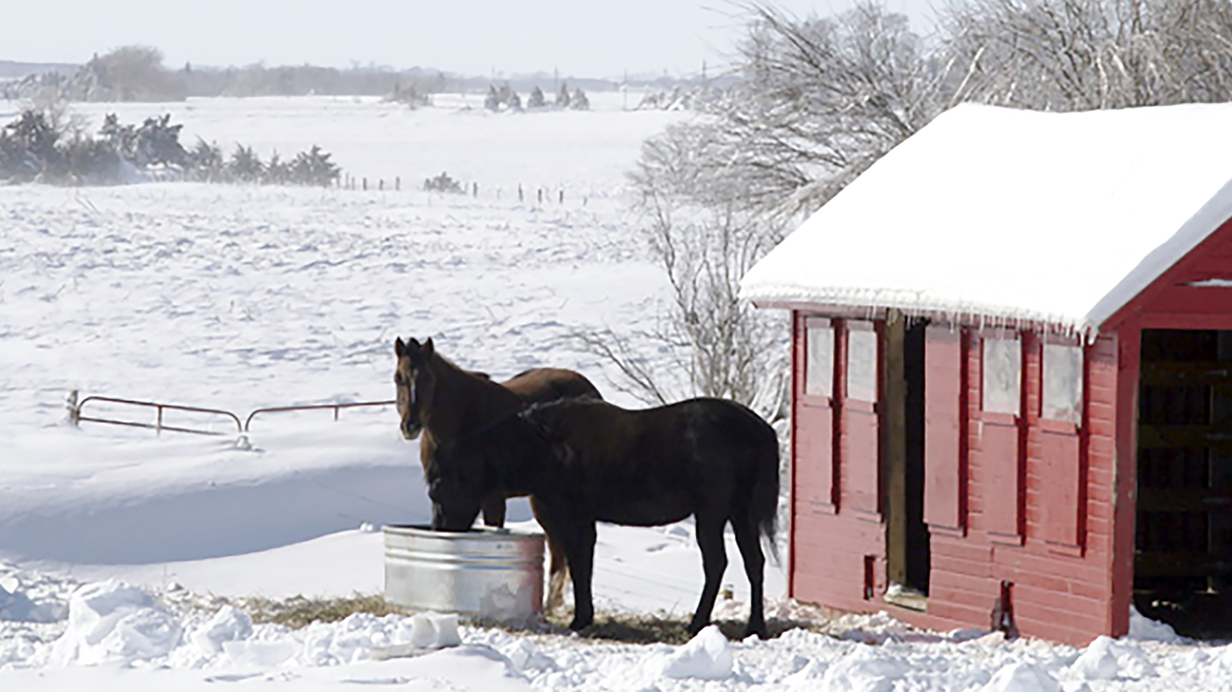Seven tips for keeping horses outside in winter
There are many benefits to raising horses outdoors. For instance, it requires less maintenance, better reflects their natural inclinations and leads to better physical and mental health. But you need to know how to adapt your management practices. Here are seven key things you should do when keeping horses outside in winter.
1. Maintain a body condition score of 5 or 6 out of 9
Ideally, your horses will have a body condition score of 5 or 6 out of 9 going into winter. Body fat provides an insulating layer and an energy reserve that horses will use when their ration is unable to supply enough calories. This reserve should be preserved, unless the body condition score is too high (example: overweight or obese horse).
2. Provide a hay ration of at least 2% of body weight
Horse should normally consume about 2% of their body weight in hay per day. Horses can lose weight if they do not consume enough energy to compensate for heat loss due to winter cold.
Horses are adaptable. They can tolerate a drop in temperature, but below a certain threshold, they require more calories:
Lower critical temperature (LCT):
For healthy adult horses, the resistance threshold is -15 °C.
For growing horses, the threshold is 0 °C.
Below the LCT, increase their usual intake by 2%.
3. Meet requirements with feed
Provide concentrates as needed when:
Hay does not provide sufficient calories.
A horse needs to gain or maintain weight.
You want a horse to perform at a certain level.
4. Provide vitamins and minerals
It’s important to provide vitamins and minerals in winter as they contribute to:
General health and a healthy immune system
Good quality winter coats
Water intake and retention
All physiological functions of the body
5. Provide unlimited access to clean, lukewarm water
Horses must always have access to clean, lukewarm water (2 to 10 °C) and a salt lick. Water helps maintain appetite and digestive function.
Snow is not a suitable substitute. Horses need 10 times more snow than water to meet their needs. Horses must expend energy to bring snow from the outside temperature to their body temperature (37 °C). This is a huge loss of energy which, when combined with a diet of hay that is difficult to digest, can lead to colic.
6. Provide access to shelter
Horses need a suitable shelter with:
Three sides or two exit doors
Protection from wind and inclement weather
A dry area with bedding
A heated drinking trough
Horses kept in a shelter can retain more body heat than horses kept in an exposed area.
7. Check your horses regularly
In winter, it’s important to monitor your horses’ body condition and health regularly. Any abnormalities (weight loss, behavioural changes, symptoms of illness) should be identified and treated promptly.


